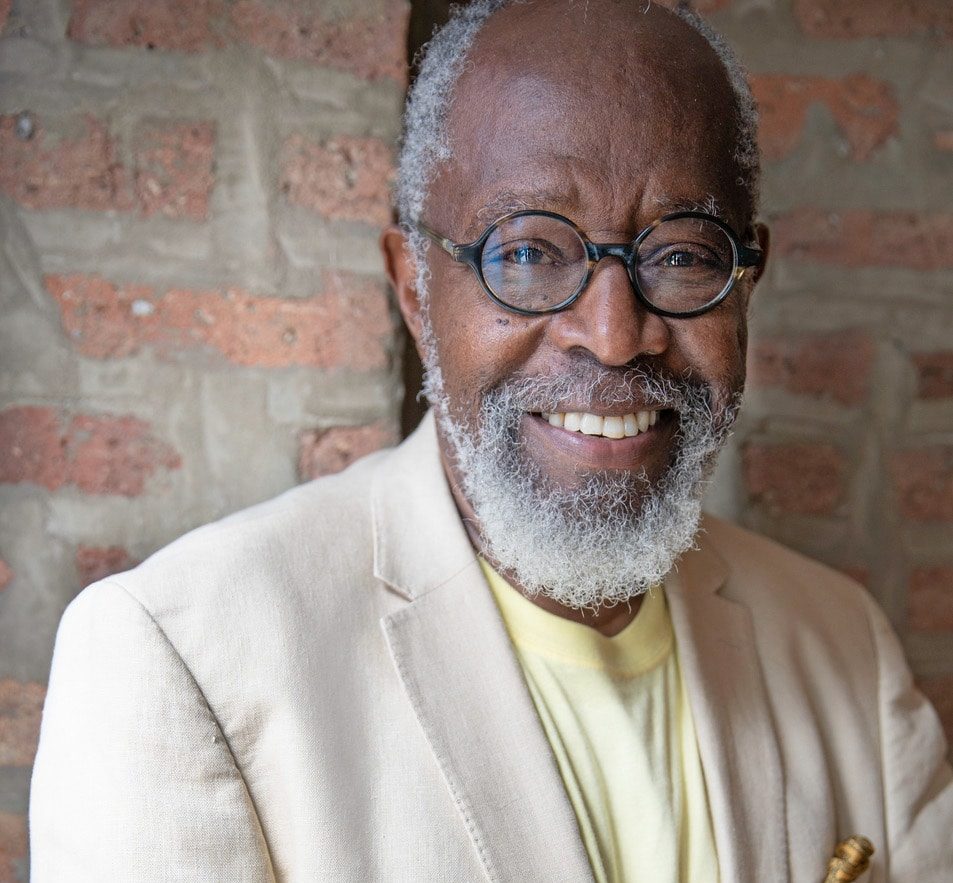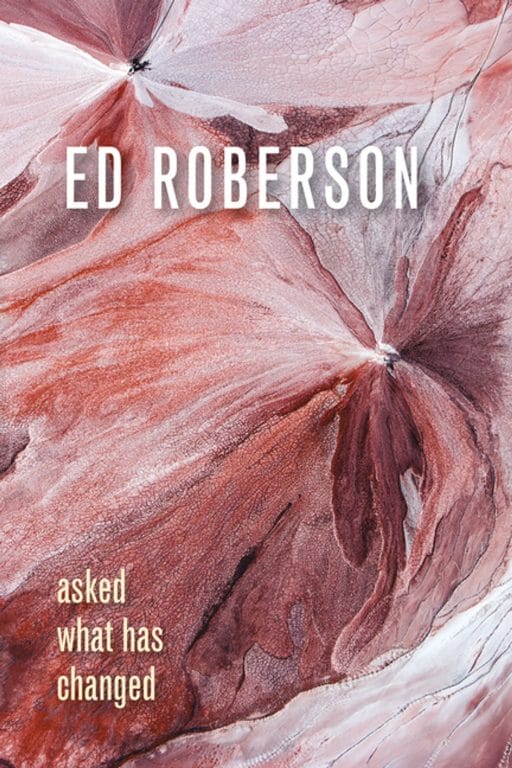
Ed Roberson, born and raised in Pittsburgh, Pennsylvania, is a contemporary poet interested in the environment, visuality, and spirituality. He is the author of numerous collections of poetry, including MPH + Other Road Poems (2021), the chapbook Closest Pronunciation (2013), To See the Earth Before the End of the World (2010), which was a runner up for the Los Angeles Times Poetry Award, The New Wing of the Labyrinth (2009), City Eclogue (2006), and Atmosphere Conditions (1999), which was chosen for the National Poetry Series, and was a finalist for the Lenore Marshall Poetry Prize. He lives in Chicago, where he has taught at the University of Chicago, Columbia College, and Northwestern University.

Judges’ Citation
Through inventive language that moves with the sonic beauty and unpredictability of lake breakers, or wheeling swallows, Ed Roberson’s Asked What Has Changed is a challenging and urgent interrogation of and reckoning with the history, violence, and revelatory inevitability of interconnectedness between humans and nonhumans.
Poised between the vertical forces of social inequality and racial injustice, the horizontal sprawl of ghettoized urban growth and environmental degradation, and the temporal trajectories of a glacial past and a climate-changed future, these poems position a poetic eye attuned not only to seeing, ‘but with understanding sight.’ Through inventive language that moves with the sonic beauty and unpredictability of lake breakers, or wheeling swallows, Ed Roberson’s Asked What Has Changed is a challenging and urgent interrogation of and reckoning with the history, violence, and revelatory inevitability of interconnectedness between humans and nonhumans. Continuing to expand the possibilities for Black aesthetics and ecopoetics, this book is a crucial contribution to pressing political, artistic, and environmental questions.
Selected poems
by Ed Roberson
Even staring out the window is changed,
the private peak above it all brought down
with the erosion of the poise between
the viewable and the mused unseen.
Dissolution so nearly changeless as not
to appear is shifting the sands inside
from what we watched, no more the steady stage
the self-dramatic days play out on outside.
The silent portent now allowed alert
to things changing the light
a darkness
not the normal individual
mortality, but as if the epochal
heartbeat of larger elements, the seas,
the air, had mutated, become chimera,
grown wing, and routed ancestral time.
Even staring out the window, the timeless
is gone. We see coming
in the daily migration of the local geese
to the lake at evening the cities pull up
and move in unlike consternation towards and
away from the water
that had been so calming to gaze out on,
to live by, easy to not live according to.
And now that seas are adding themselves
into the land, horizons look ominously larger,
the arrivant out of them, faster and clearer.
Now, you see the view is turned on us to frame
human agency become transparent,
light as air, before the picture blackens
as a consequence of our seeing too much
of it as only for us to use and then
use up.
The eye is not filled with seeing, with only
seeing, but with understanding the sight.
Copyright © 2021, Ed Roberson, Asked What Has Changed, Wesleyan University Press
asked what has changed
You should wonder what the necklace of your
fingernails and teeth look like worn
for instance by the bear that ate you more
likely than not very unpolished or
a cave wall hanging
too skinny rug even
peeled open for the floor,
more belts and wallets
were bears enamored of accessories,
what with the sun-bleached tip of each hair
to flop back and forth through their fur
an iridescence wind-like through a field,
how redundant you are in addition,
useless if aesthetics have no nutrient,
but then you might not even have a beauty
to collect, have anything to do with anything except
the way you see
You should wonder what a necklace of your teeth
would bring among the animal trade
your ears
war criminals among your own were known
to string like cowries
of victory your genitals
in jars on desks your conqueror kept
to terrify their sharecroppers—
but animals
don’t keep containers outside their bodies
as their mess;
you should wonder what your bones
drape like in their stomachs
what your eyeballs light
in their digestive fireplaces
what your prune liver
makes them shit like jewels delivered to the earth
their gifts for fertilizing the dirt—
you should wonder whether your ideas
of beauty are as generous.
Copyright © 2021, Ed Roberson, Asked What Has Changed, Wesleyan University Press
Luxe
- Griffin Trustee Paul Muldoon Interviews Ed Roberson
- “Even Looking out the Window has Changed” Chicago Review of Books
- Ed Roberson Profile Poetry Foundation